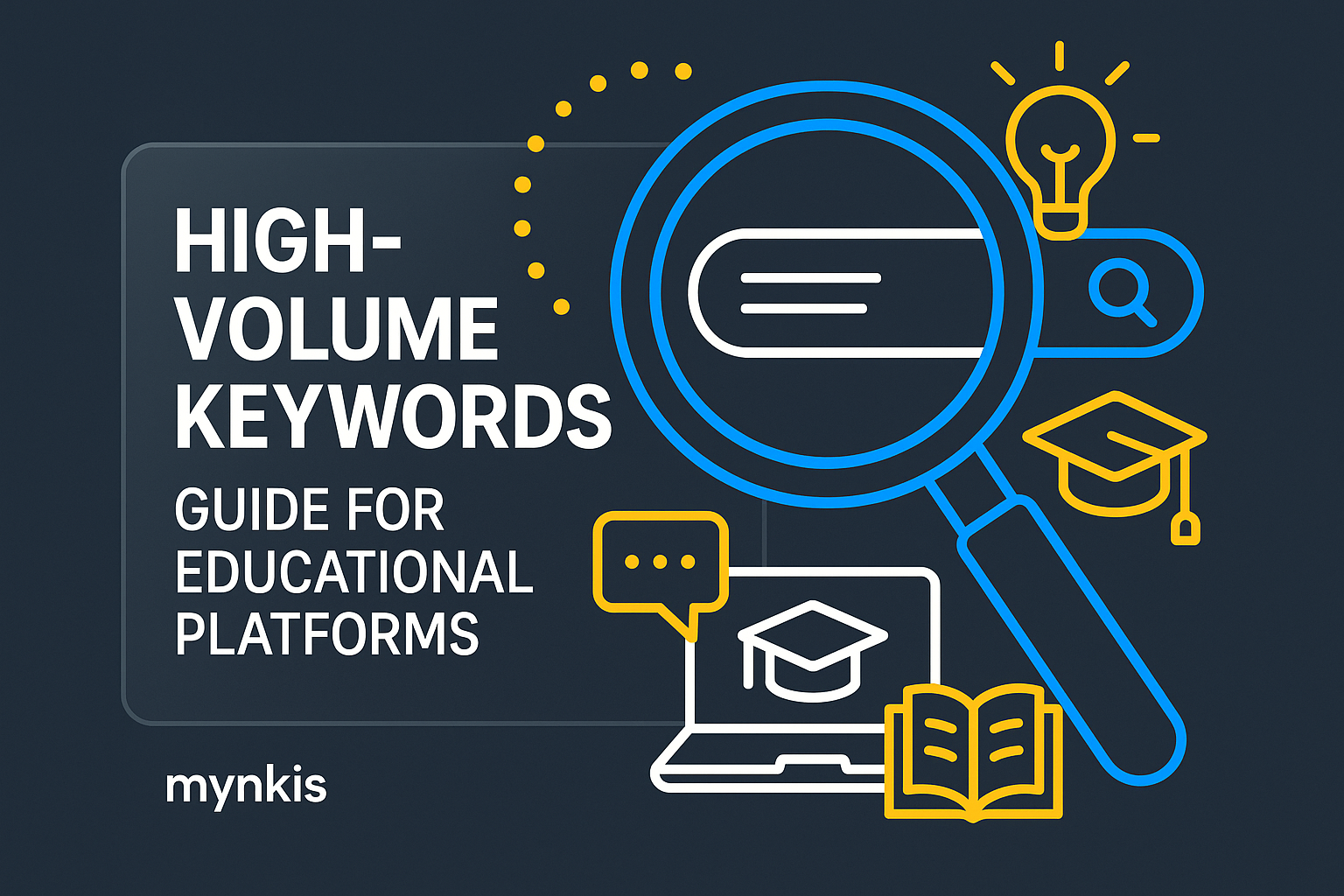Schedule a Demo
High search volume keywords are the compass by which educational institutions can steer their online platforms. In my work with schools and universities, I've witnessed the power these keywords hold in driving search traffic and engagement. They are the digital equivalents of well-trodden paths, crowded with searchers who are actively seeking information, courses, or academic resources.
The importance of targeting specific keywords cannot be overstated, especially in education. With a burgeoning digital landscape, universities need their custom learning management systems and websites to not just function aesthetically, but also rank prominently in search engine results. This isn't just about visibility—it's about ensuring students and faculty find your academic offerings swiftly and effortlessly.
To begin navigating the keyword seas, conducting thorough research is vital. Start with tools like Google's Keyword Planner or more specialized software that can provide insights into what terms are being used by prospective students and educators. Don't just skim the surface—dive deeper to unearth long-tail keywords related to specific academic programs, such as 'online psychology degree in California' rather than just 'online degree.' These less obvious selections often reveal untapped opportunities.
Competitor analysis should be your next step, and I can say this based on firsthand experience: looking at other institutions' keywords can feel like peering through a periscope into enemy waters. Tools like SEMrush or Ahrefs allow you to scout out what keywords other universities are ranking for, giving you a clearer understanding of their strategy. From there, determine if there are gaps you can fill or topics you can address with even more depth and authority.
Once your keywords are selected, they must be seamlessly woven into your web content. Your site should be a carefully curated experience where each keyword blends naturally into course descriptions, academic blog posts, and even your custom learning management system interfaces. Keep in mind, search engines favor websites that provide value, so ensuring keywords align with comprehensive, informative content is crucial. Consider content that will resonate academically as well as inform search engine algorithms.
Keyword stuffing used to be a thing of the past, yet some educational platforms still fall into this trap. My advice is to strike a balance: ideally, include your primary keywords—like 'custom software development'—3-5 times across the content. But don't compromise the quality of your instructional material or the academic integrity of your site. The best pages integrate keywords in a way that enhances, rather than detracts from, their educational value.
While high-volume keywords are essential, don't ignore the power of long-tail keywords. According to Google, these more specific searches often indicate higher intent. For an educational institution, phrases like 'interactive learning for 7th grade math' or 'affordable online journalism courses' can capture highly targeted traffic. These are visitors who are closer to enrolling or engaging with your institution.
In terms of on-page SEO, every element counts. Optimize your headers, meta descriptions, and even alt text for images to cater to high-volume keywords. Over my career, I've seen the impact this can have: when all these elements are fine-tuned, not only do search engines notice, but your audience retention rates increase too. Personalization, coupled with these technical elements, is key to on-page SEO success.
Data is your friend when it comes to adjusting your keyword strategy. Regularly check your site's performance through tools like Google Analytics to see how keywords are performing. Are certain terms boosting course enrollments? Or perhaps some long-tail phrases are getting bounced due to irrelevant content? Based on this data, iterate and optimize—sometimes only slight tweaks can lead to a significant impact.
SEO is not a static field; search engine algorithms evolve, student behaviors shift, and new academic programs emerge. To future-proof your SEO strategy, consider leveraging emerging technologies like voice search optimization or anticipatory keywords. Also, keep educating yourself—subscribe to updates from organizations like the Search Engine Journal to stay on top of trends that can affect how your educational platform appears in search results.
The great Terry Heaton of Netcast draws attention to 'intention-based searches' as a way to reach audiences when they are most motivated. Applying these ideas to educational institutions involves not just keyword mastery but intention interpretation. Understanding the motivations behind searches can guide you to creating truly tailored content.
Trustworthiness should underpin all your SEO efforts, especially in the education sector where credibility is paramount. Clearly label sponsored content, disclose any affiliations, and be forthright about the nature of all academic offerings on your site. This not only satisfies search engine guidelines but builds a lasting rapport with those you wish to educate.
